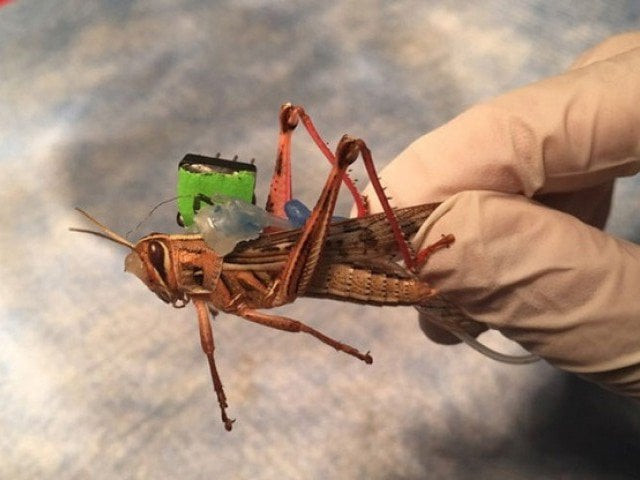Expert suggests use of drones for anti-locust spray
The benefits of drones outweigh the airplanes as they are safer, cost effective

PHOTO: EXPRESS/FILE
"The benefits of drones outweigh the airplanes in many respects, especially in terms of safety to humans," he said, adding that the aerial spray for locust control from the planes often affected the settled areas as well as the surface and groundwater.
Besides, he added, airplanes require an airfield in proximity of the agricultural land or desert where the spray is required unlike the drones. He said that the drones cannot only conduct spray but they can also help spot the activity of locusts.
"If significant infestations are found, then a controlled drone could safely and effectively spray the locusts before they form swarms". He underlined that using drones for locust control will minimise risks to humans and make operations safer for the environment, besides leading to a reduction in the use of pesticides.
The drones can be equipped with high definition visual sensors and thermal cameras. They can map the potential outbreak areas, monitor vegetation and groups of gathering locusts. The drones will transmit their data instantly. "They are much more cost effective than airplanes and helicopters," he added.
SAU Vice-Chancellor Dr Mujeebuddin Sahrai said that the locusts have attacked the crops in Sindh after 22 years. He stressed the need for more scientific research about the potential of the locusts to cause harm to the crops as well as mitigation measures against them.
He said that his university was strictly adhering to the principle of translating the research theses in Urdu and Sindhi languages from English so that the local farmers could benefit from the research. The Hyderabad division commissioner Muhammad Abbass Baloch said that the varsity should raise awareness among farmers about locusts monitoring and control. He assured that the recommendations of the agricultural experts will be incorporated in government policy.
The Plant Protection Faculty's Prof Dr Imran Khatri briefed the seminar about the types of locusts and their entrance in Pakistan some months ago from Iran. The locusts entered Sindh in late May. They first appeared in Nara Desert of Khairpur district and their presence was later reported in half a dozen other districts.
Published in The Express Tribune, July 19th, 2019.


















COMMENTS
Comments are moderated and generally will be posted if they are on-topic and not abusive.
For more information, please see our Comments FAQ